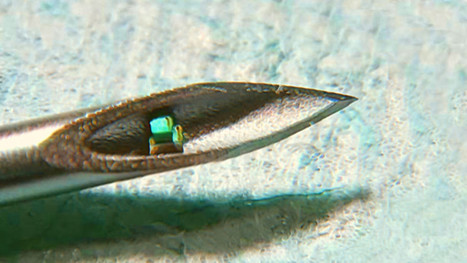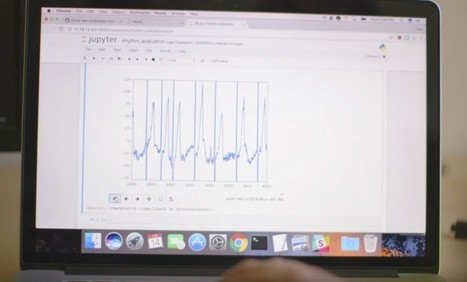The world's smallest computer chip is the size of a dust mite! Check out the future of medical tech.
Electronics are getting imperceptibly small, opening new avenues for medical technology to place advanced monitoring and treatment devices inside our bodies. And Columbia University engineers just demonstrated a new and revolutionary version of this, creating the world's smallest single-chip system ever developed, according to a recent study published in the journal Science Advances.
And, critically, the tiny new chip can be implanted via a hypodermic needle to measure internal body temperature, and potentially much more.
A tiny computer chip was implanted into seven mice at once
The implant created by the engineers at Columbia is record-breakingly small, but it's also breaking new ground in simply existing as a wholly functional, electronic circuit whose total volume is less than 0.1 cubic millimeter. In other words, it's the size of a dust mite, not to mention far more compact than the world's smallest computer, which is a cube-shaped device precisely 0.01-inches (0.3 mm) on each side.
The smaller, new chip is only visible with a microscope, and pushed the envelope in power-sourcing and communications ingenuity design.
The injectable chip could serve as an 'early warning' system against future outbreaks
Such tiny chips could also be implanted in the human body, and then communicate measured information and data wirelessly through ultrasound. As the device stands, it can only measure body temperature, but it could eventually also monitor respiratory function, glucose levels, and blood pressure. "We wanted to see how far we could push the limits on how small a functioning chip we could make," said Ken Shepard, leader of the Columbia study, in a report from New Atlas. "This is a new idea of 'chip as system' — this is a chip that alone, with nothing else, is a complete functioning electronic system."
more at https://interestingengineering.com/smallest-ever-injectable-chip-hints-at-cybernetic-medicine



 Your new post is loading...
Your new post is loading...












